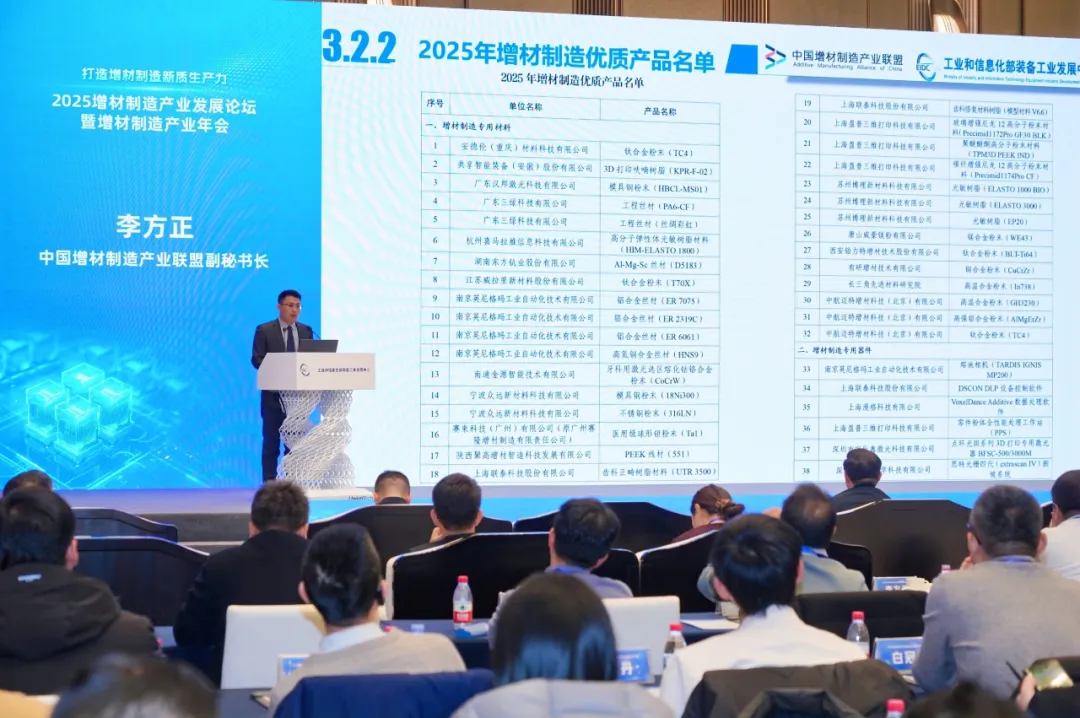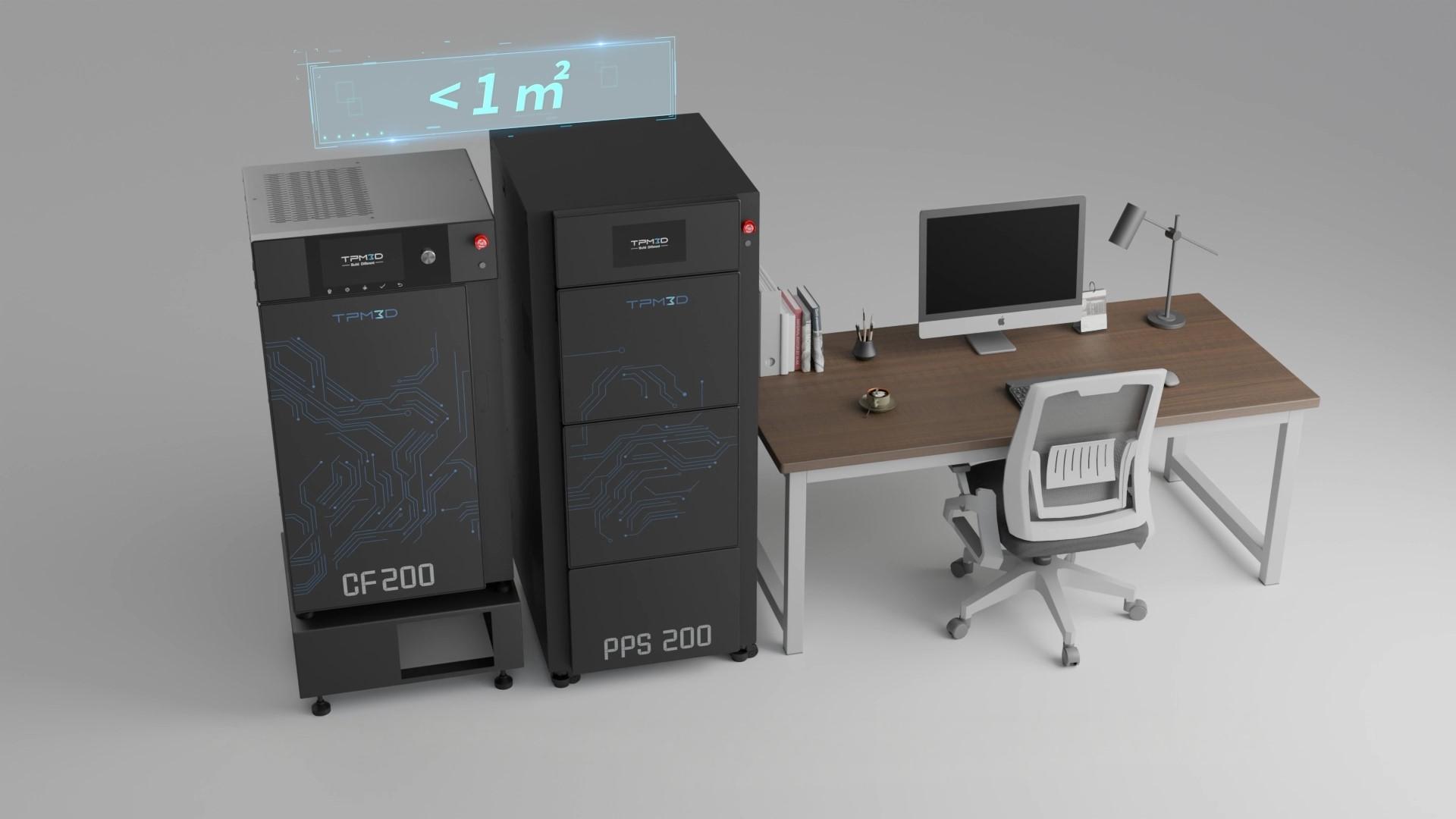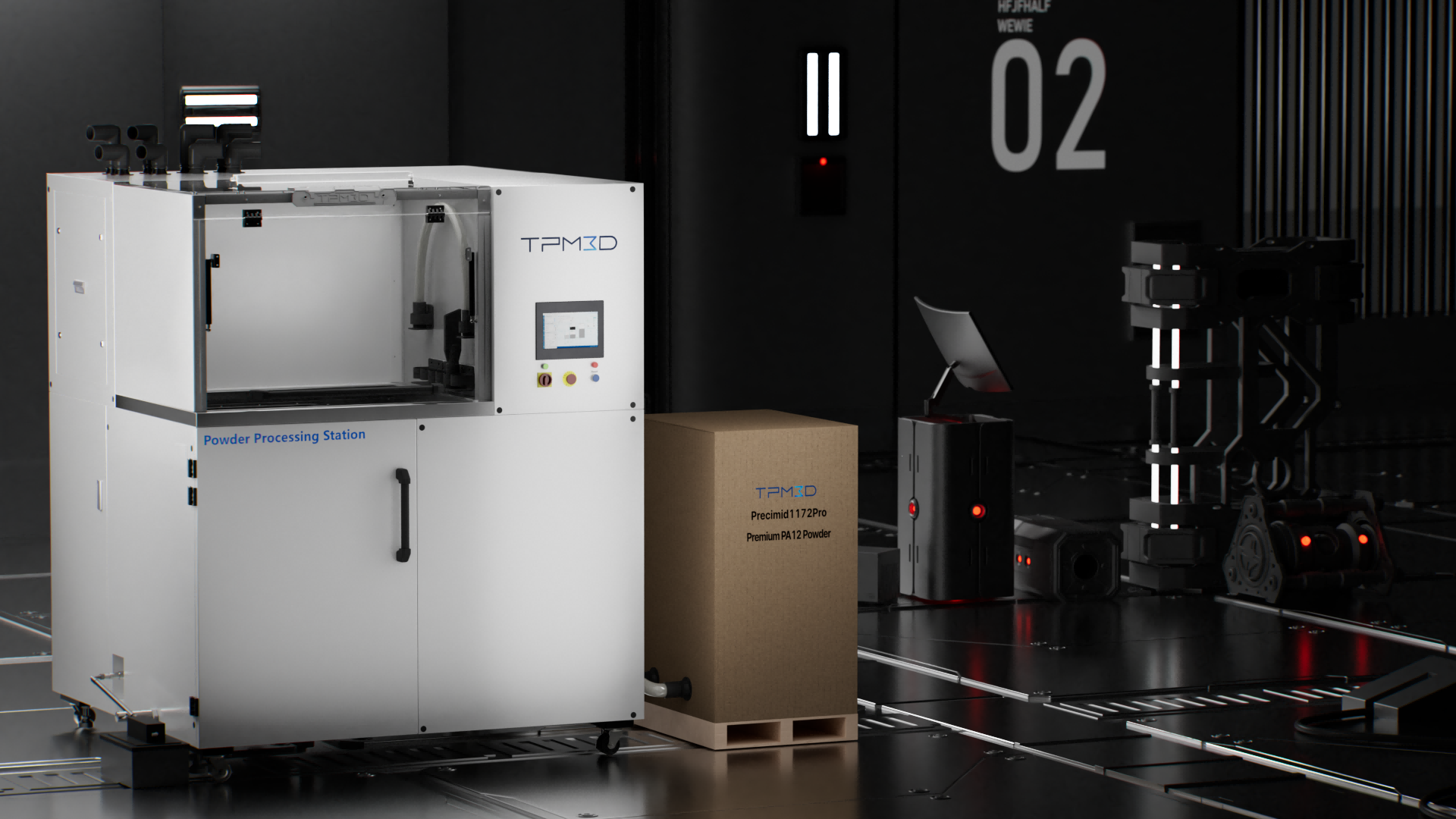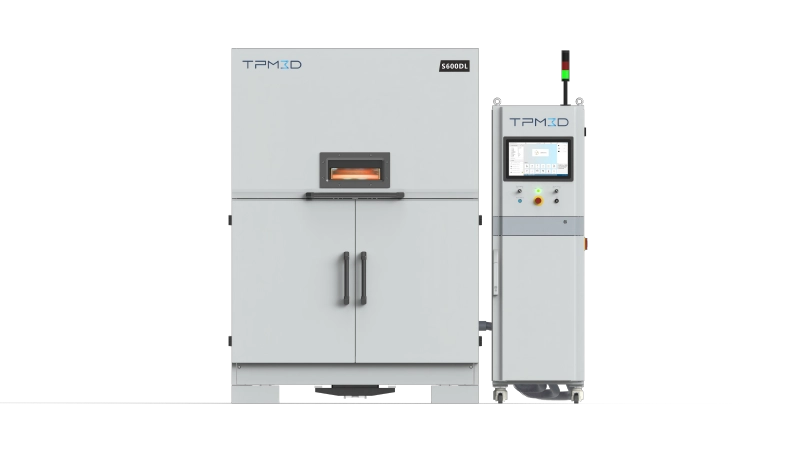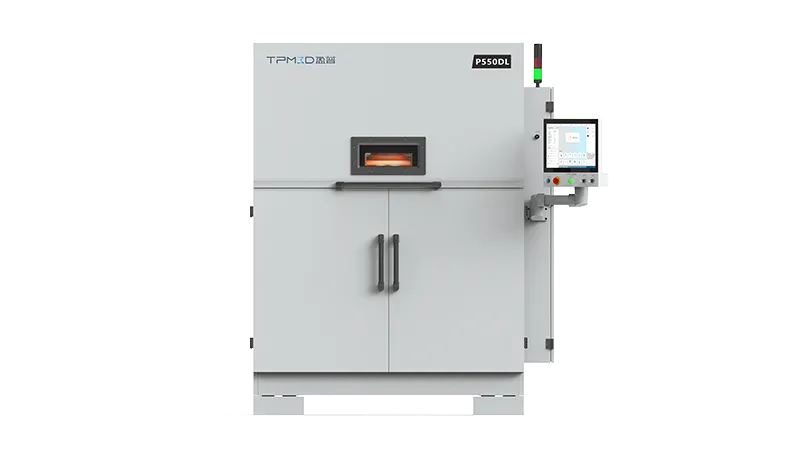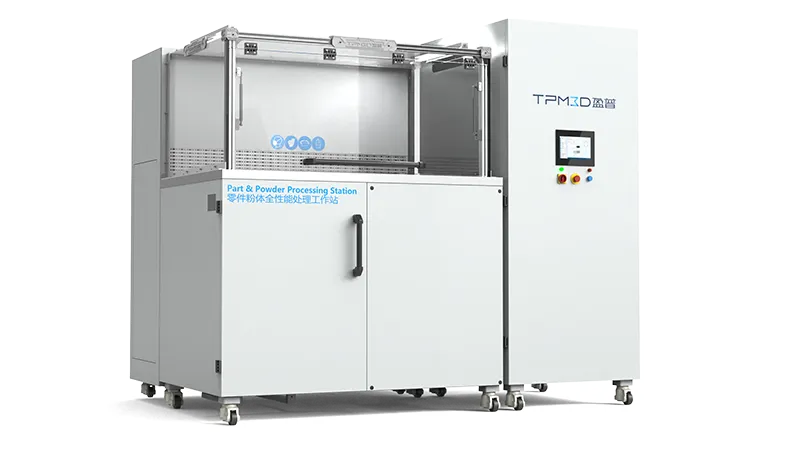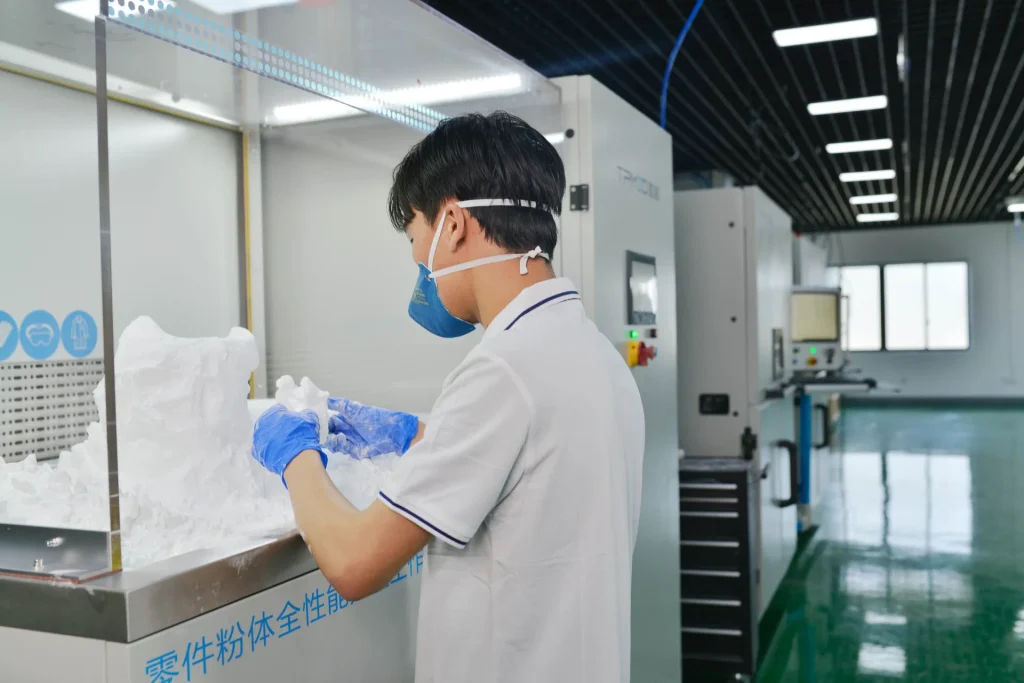China’s service bureau industry has long been mature, historically dominated by CNC machining and other traditional methods. Over the past decade, SLA (stereolithography) 3D printing has become widespread, with leading service bureaus operating hundreds of SLA machines to meet market demand. Recently, however, a new trend has emerged: top service bureaus are investing in SLS (Selective Laser Sintering) 3D printing to offer high-performance nylon and other material solutions for functional prototypes.
SLS 3D Printing: A Game-Changer for Service Bureaus
SLS is a powder-bed laser additive manufacturing technology that sintered powdered materials layer by layer. Its key advantage is that it requires no support structures, allowing efficient production of complex geometries and functional components. SLS is compatible with a wide range of materials, including high-performance polymers.
In service bureaus, SLS shows particular promise for functional verification and small-batch production. Compared with SLA and FDM, SLS delivers higher precision, greater strength, and superior durability, making it ideal for components with complex structures and demanding performance requirements. This versatility has led to its adoption across industries such as automotive, aerospace, consumer electronics, medical devices, and creative design.
As the share of polymer powder materials continues to rise globally, SLS is increasingly recognized as an essential manufacturing tool. Its ability to enable rapid design iteration while reducing production costs has accelerated the transition of 3D printing from prototyping to small-scale production. As a domestic pioneer in SLS technology, TPM3D has provided innovative solutions for service bureaus and contributed to expanding the global adoption of SLS.
Industry Leaders Embrace SLS
KeHeng: Early Adoption Sparks New Growth
Founded in 2008, KeHeng operates over 800 3D printers and produces more than 20 million parts annually. In 2018, the company introduced SLS printers to meet the growing demand for functional parts in the automotive and consumer electronics sectors. Chairman Wen Binghua recalls:
“In 2018, we decided to invest in SLS equipment as the market demand, especially in automotive and electronics, was rising rapidly.”
This strategic investment not only allowed Keheng to meet market needs but also opened new avenues for growth. Today, SLS forms a key part of the company’s business, enhancing its rapid product iteration capabilities.
Nanjing Youyue 3D: Focusing on SLS, Achieving 50% Annual Growth
Nanjing Youyue 3D Technology Co., Ltd., founded with a focus on SLS, has expanded steadily from 2019 to 2024, achieving an average annual growth rate of 50%. General Manager Wu Cao highlights a notable application in the nuclear power sector, where SLS enables the production of components with highly complex internal structures—challenging to manufacture with conventional methods. Wu notes:
“SLS has immense potential across industries, particularly for complex parts. Our collaboration with TPM3D continues to drive innovation and growth.”
Achwisdom: Capturing Market Opportunities with SLS
Founded in 2013, Achwisdom specializes in industrial 3D printing. After introducing TPM3D SLS equipment in 2016, the company rapidly strengthened its competitive edge in the service bureau market. General Manager Shi Yadong explains:
“With growing demand, SLS has become our second growth curve, now accounting for nearly 70% of our business.”
Ackwisdom’s experience demonstrates that SLS is not only replacing traditional manufacturing methods in service bureaus but also serving as a core driver of business growth.
SLS: Driving the Next Phase of 3D Printing
Polymer powders have surpassed photopolymers in the global 3D printing material market share for three consecutive years, reflecting the dominant position of SLS technology. Its ability to meet functional and structural demands while enabling small-batch production is driving the shift from prototyping toward end-use component production.
From Keheng to Nanjing Youyue 3D and Achwisdom, it is clear that SLS 3D printing is boosting efficiency and opening new growth channels for leading service bureaus. With increasing market demand for functional, complex parts, SLS technology is poised to drive the next wave of development in the service bureau industry.




